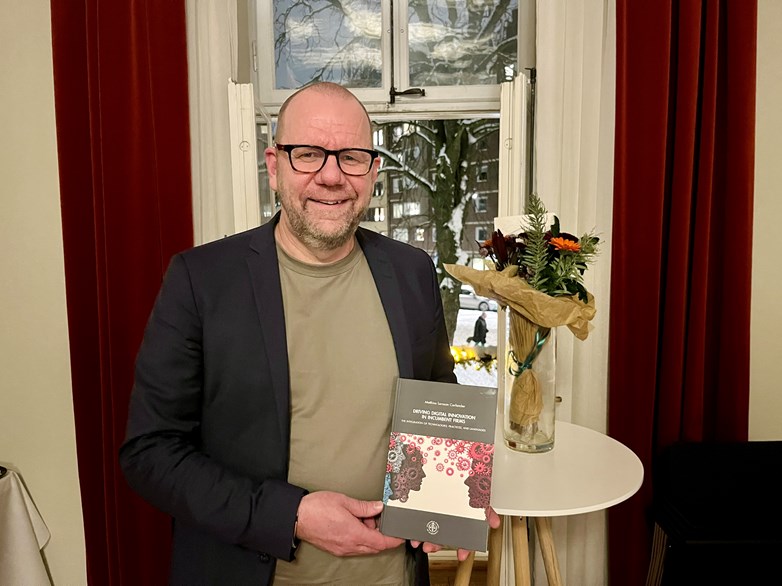PhD Defense | Integration of digital and physical technologies in incumbent firms
Integration of digital and physical technologies in incumbent manufacturing firms
This dissertation investigates the integration of digital and physical technologies in incumbent manufacturing firms. It reveals how combining agile development cycles and dynamic sourcing creates new development practices, contrasting traditional methods.
Integration of new digital practices in traditional manufacturing firms
Manufacturing firms are evolving, integrating digitized physical products with digital services. This shift requires new digital service development practices alongside established product development methods. This research focuses on incumbent firms developing integrated product and digital service solutions, revealing that implementing agile development cycles and identifying component solution patterns can integrate development practices across technology domains.
Adapting to digital innovation
The transformation of digital infrastructures into loosely coupled modular (e.g. microservice) architectures introduce a network of digital components different to the hierachical technology structures common in many products. For incumbent manufacturing firms, adapting to digital innovation thereby means managing not only two diverging development practices and value-creating logics, but also different technology structures. The research shows how digital innovation balance the integration of physical structures and digital infrastructures, a complex yet crucial step for contemporary manufacturing firms.
Key research findings
- Agile development cycles and dynamic sourcing are critical in integrating development practices.
- A new relationship development path with external firms emerges, shifting from initial exploration to focusing on operational efficiency at scale.
- Integration of product and digital service development practices is crucial for effective technology integration.
Expanding the theoretical foundation in digital innovation
The dissertation expands the theoretical foundation in digital innovation by introducing a language-based view of the firm. This perspective considers language as a tool to share experiences and thoughts, encompassing tangible and intangible representations. It provides a framework for understanding organizational learning processes and knowledge codification, particularly in firms developing complex solutions with both mechanical products and digital services.
Meet the researcher
- Dr. Mathias Larsson Carlander: Researcher, Department of Innovation Entrepreneurship and Technology, House of Innovation, Stockholm School of Economics.
